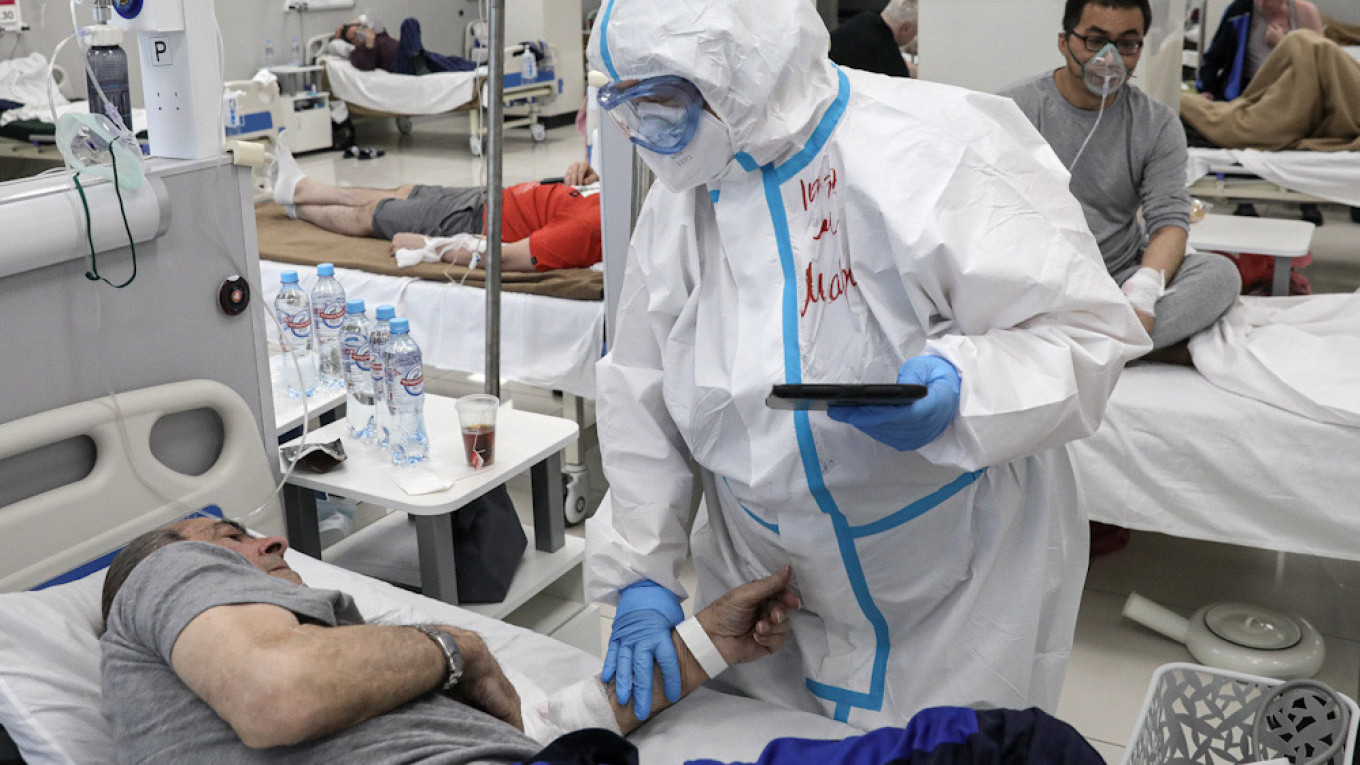Russia’s latest coronavirus surge could peak at 25,000 new cases per day by the end of June, according to a mathematical model cited by Russian media.
The St. Petersburg State University made the four-week projection as health experts raise the alarm over a third wave and blame the latest spike on Russians flouting health precautions and refusing vaccines. Moscow and St. Petersburg, the hardest-hit Russian cities by the pandemic, have both reintroduced restrictions in recent days in a bid to contain the virus' spread.
After peaking, new cases could decrease by mid-July to an average of 20,000 per day, then decline further by Aug. 1, the St. Petersburg State University projection said as cited by the pro-Kremlin daily Izvestia.
Russia’s coronavirus response center has gone from reporting around 9,000 new cases per day in early June to more than 14,000 in recent days. New infections in Moscow, the epicenter of Russia’s outbreak and the source of the so-called “Moscow strain” of the virus, have more than doubled in the past week to around 7,000.
The model comes as the Baza Telegram channel reported Tuesday on an alleged vaccine passport black market that enters unvaccinated customers into an official database of those who have been immunized.
Unused vaccine doses are “opened and poured out in case there’s an inspection,” Baza quoted one of the sellers as saying.
Officials say 18 million Russians, or around 11% of the population, have received one of four homegrown coronavirus vaccines so far as polls reflect deep-rooted skepticism of Russian-made jabs.
The Kremlin expressed dissatisfaction with vaccination rates Tuesday, saying they “leave much to be desired” but insisting that immunizations should remain voluntary.
The chief doctor of Moscow’s main Covid-19 hospital Denis Protsenko is the latest public figure to call for making vaccinations mandatory to speed up the country's flagging vaccination campaign.
A Message from The Moscow Times:
Dear readers,
We are facing unprecedented challenges. Russia's Prosecutor General's Office has designated The Moscow Times as an "undesirable" organization, criminalizing our work and putting our staff at risk of prosecution. This follows our earlier unjust labeling as a "foreign agent."
These actions are direct attempts to silence independent journalism in Russia. The authorities claim our work "discredits the decisions of the Russian leadership." We see things differently: we strive to provide accurate, unbiased reporting on Russia.
We, the journalists of The Moscow Times, refuse to be silenced. But to continue our work, we need your help.
Your support, no matter how small, makes a world of difference. If you can, please support us monthly starting from just $2. It's quick to set up, and every contribution makes a significant impact.
By supporting The Moscow Times, you're defending open, independent journalism in the face of repression. Thank you for standing with us.
Remind me later.






